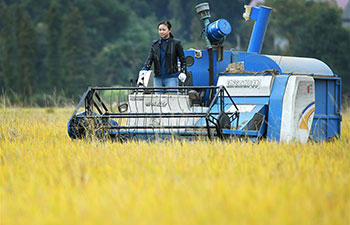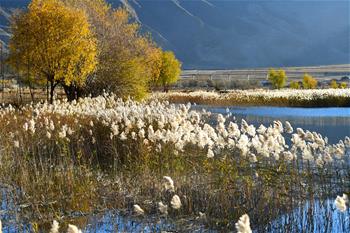SYDNEY, Nov. 5 (Xinhua) -- Australian scientists' discovery of a tiny parasite in far greater numbers than previously believed, could change how scientists think about Antarctic food chains, local media reported on Monday.
The syndiniales parasite is a microscopic organism which exists in water samples from areas of the world's oceans in numbers of about 1 percent of marine life.
However, in the Southern Ocean near Antarctica, researchers from the Australian Antarctic Division (AAD) have found the plankton-killing parasite in unprecedented levels - up to 50 percent of living matter in samples.
Dr Bruce Deagle from the AAD said the discovery changes experts' understanding of those Southern ecosystems which has previously failed to factor in the parasite's influence.
"We've sort of been modelling these populations and looking at the ecosystems without including parasites as a variable, and the impact of those parasites," Deagle said.
The syndiniales parasite exists inside phytoplankton and once it has infected a cell, will eventually kill it, while the cell will burst, and go on to infect other cells.
Because krill rely on plankton for food, and whales and other animals feed on the krill, the presence of the parasite may have unknown effects on the broader food chain structures of the cold Southern waters.
"All of those larger organisms do depend on the energy that's coming from the phytoplankton," Deagle said.
"This (research) is providing a new factor that really does affect the productivity of that whole ecosystem and the base of the food web - so exactly how that impacts is something that we are going to have to find out."













